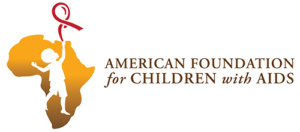Each dollar donated toward Project One Million can purchase an HIV testing kit. How will testing kits help AIDS orphans and their communities, and why is it important for them to get tested for HIV?
HIV (human immunodeficiency virus) can be transmitted from an infected person to another either through:
- Sexual intercourse
- Blood
- Breast milk
An infected mother can pass HIV to her baby before or during pregnancy, and to her infant through breast-feeding. It is important for each AIDS orphans to get tested for HIV because they might have been contracted with the virus. It is said that without intervention, 25 – 35% of pregnant women with HIV transmit the virus to their newborns.
While mother-to-child HIV transmission rate is 25 – 30%, it is responsible for over 90% of infections among children under the age of 15, which means preventive methods taken before, during and after pregnancy will greatly help more children grow older to enjoy what their lives have to offer, which will eventually help the entire community grow with more healthier people who can work and afford education without having to drop out to take care of their siblings, house chores or sick family members.
How can they prevent mother-to-child transmission (MTCT)? If a pregnant woman with HIV stays on anti-retro viral (ARV) drugs throughout her pregnancy, it is said that almost all MTCT can be blocked. It is also very important for children born to HIV+ mother receive anti-retro therapy (ART) during their infancy if they are tested positive. The sooner they start ART, the better.
(Note: All infants born to HIV+ mothers carry their mothers’ antibodies for up to 18 months. Since they can only test their antibodies with the testing kit, infants younger than 18 months can very well have their test results returned as positive, even if they are not, in fact, infected. The babies who test negative are truly negative, though. Infant HIV antibody testing can be effectively done after waiting for their mother’s antibodies to leave their bodies or by using more sophisticated testing methods.)
However, problems do exist to hinder mothers from getting necessary intervention or treatment. There are two “lines” of ARV drugs that are used to treat HIV carriers in Africa. Both form resistance if stopped being taken daily. If a person discontinues taking the first line of drugs, he/she needs to take the second line because the first one is no longer effective. If this person fails to take the drugs from the second line every day, he/she has no effective ARV drug available.
HIV testing is crucial yet so stigmatizing in some cultures there are people who don’t get tested themselves or don’t have their children tested. Also, for many of them, medicines, including ARV drugs and antibiotics, are not affordable. Therefore, they choose to not get tested only to know that they will die a painful, miserable death without possibility for treatment and to get ostracized within their community.
Susan Hunter, in her book Black Death: AIDS in Africa, states:
“According to the Center for International and Strategic Studies, infection rates are so high in African armies – 20 to 60 percent, depending on the country – that their risk of dying from AIDS is much higher than their risk of combat death.” (Hunter, 2003)
While national or regional security is important, AIDS can be killing more people than does war in some areas. With the ongoing wars in Afghanistan and Iraq, along with other cases of international crisis intervention, the United States has fewer budgets for its national health care, education and other system to promote its people’s physical and mental well-being, let alone that of people outside the country. The same tendency has been prevalent in many AIDS-stricken countries, which hinders health care from being more accessible to the general, poor public.
One dollar donated toward the American Foundation for Children with AIDS can be used to purchase an HIV testing kit or to buy a month supply of antibiotics or a day supply of medicine for HIV/AIDS treatment. It is important for individuals who can and want to help others in need to take action. Together, we can make a difference in the world.

